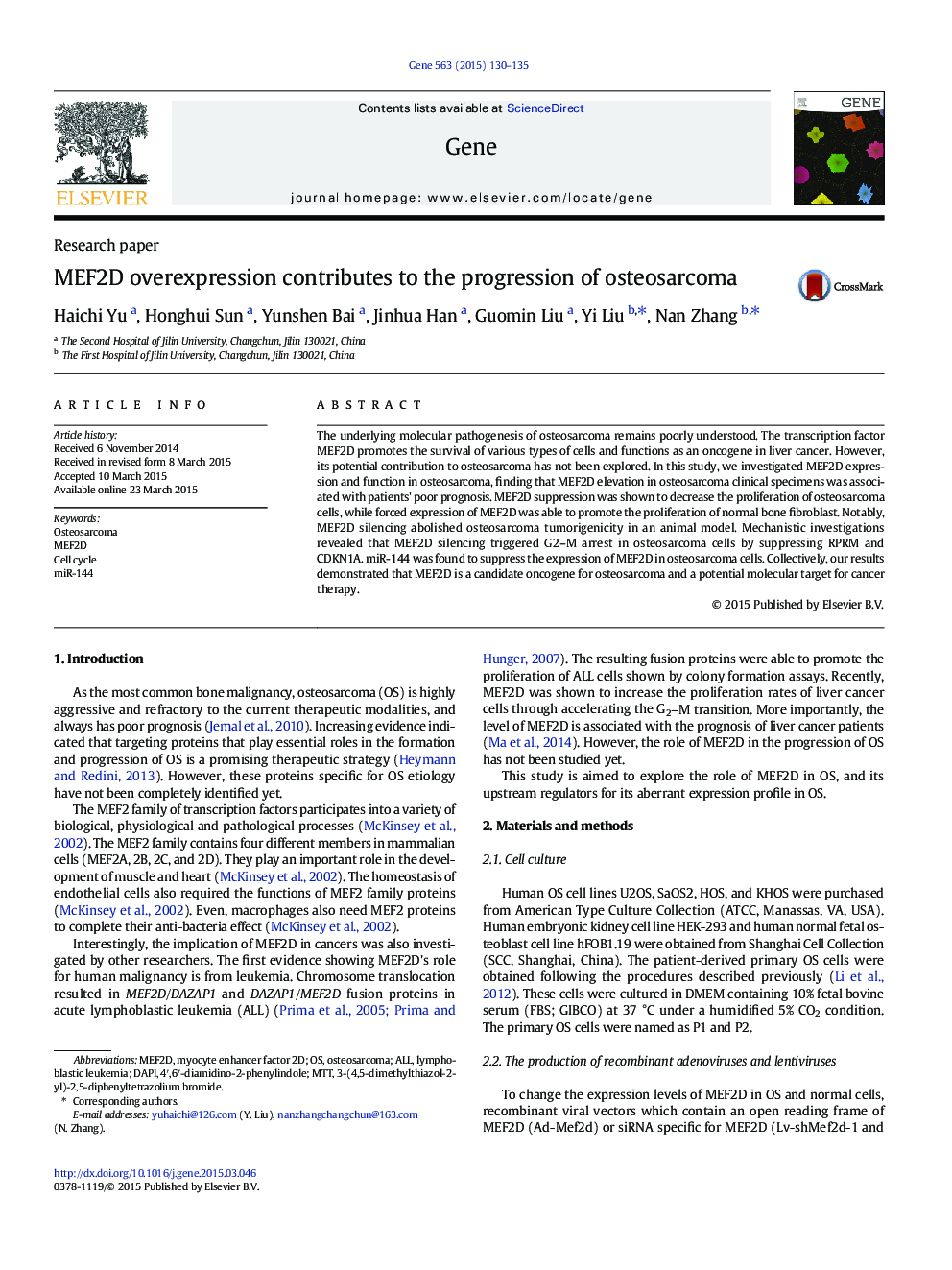| Article ID | Journal | Published Year | Pages | File Type |
|---|---|---|---|---|
| 5905456 | Gene | 2015 | 6 Pages |
â¢MEF2D is overexpressed in osteosarcoma specimen and cell lines.â¢MEF2D promotes the growth of osteosarcoma by accelerating cell cycle progression.â¢miR-144 negatively regulates the expression of MEF2D in osteosarcoma.
The underlying molecular pathogenesis of osteosarcoma remains poorly understood. The transcription factor MEF2D promotes the survival of various types of cells and functions as an oncogene in liver cancer. However, its potential contribution to osteosarcoma has not been explored. In this study, we investigated MEF2D expression and function in osteosarcoma, finding that MEF2D elevation in osteosarcoma clinical specimens was associated with patients' poor prognosis. MEF2D suppression was shown to decrease the proliferation of osteosarcoma cells, while forced expression of MEF2D was able to promote the proliferation of normal bone fibroblast. Notably, MEF2D silencing abolished osteosarcoma tumorigenicity in an animal model. Mechanistic investigations revealed that MEF2D silencing triggered G2-M arrest in osteosarcoma cells by suppressing RPRM and CDKN1A. miR-144 was found to suppress the expression of MEF2D in osteosarcoma cells. Collectively, our results demonstrated that MEF2D is a candidate oncogene for osteosarcoma and a potential molecular target for cancer therapy.
